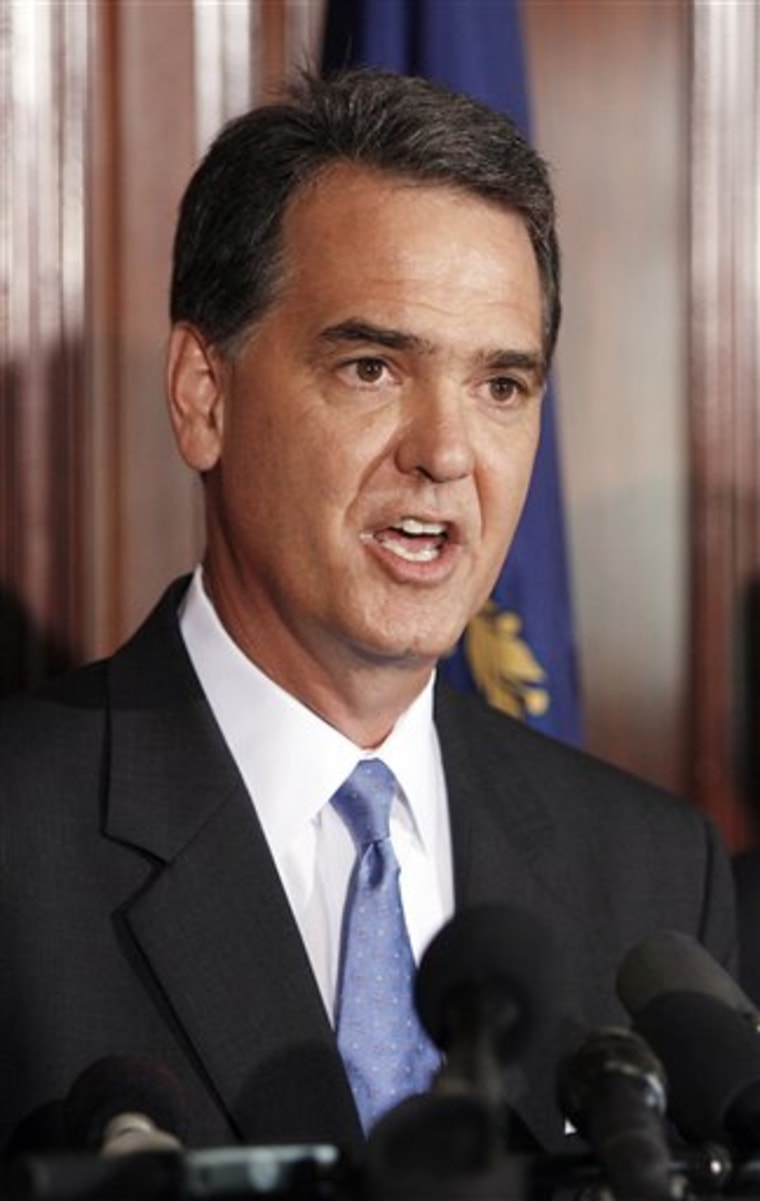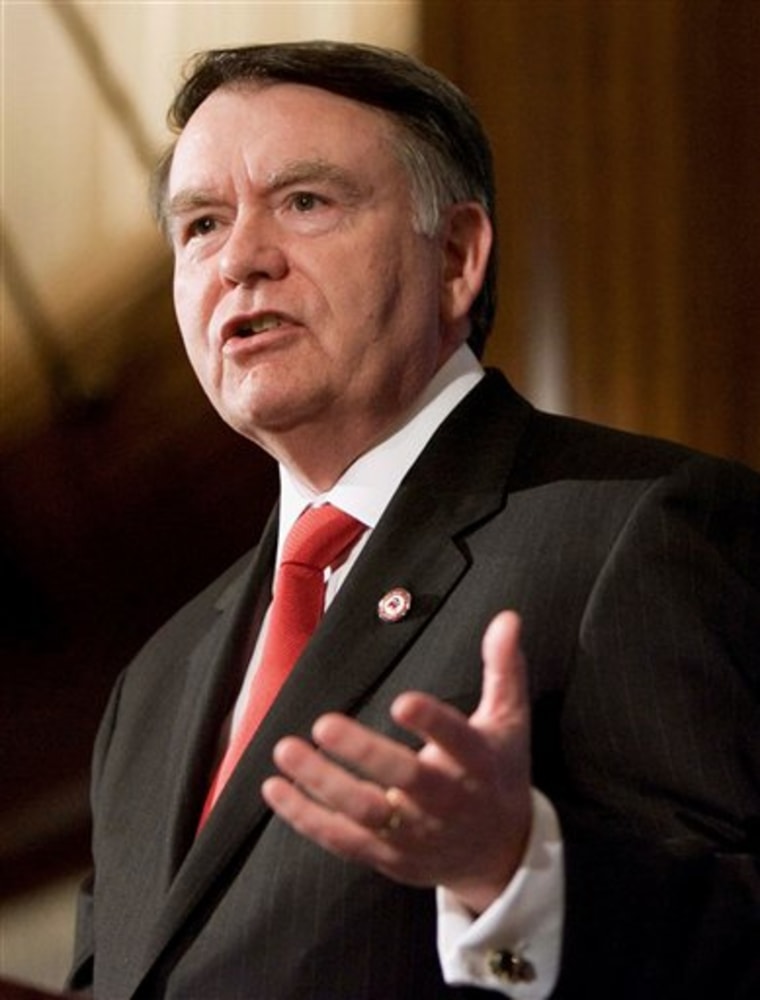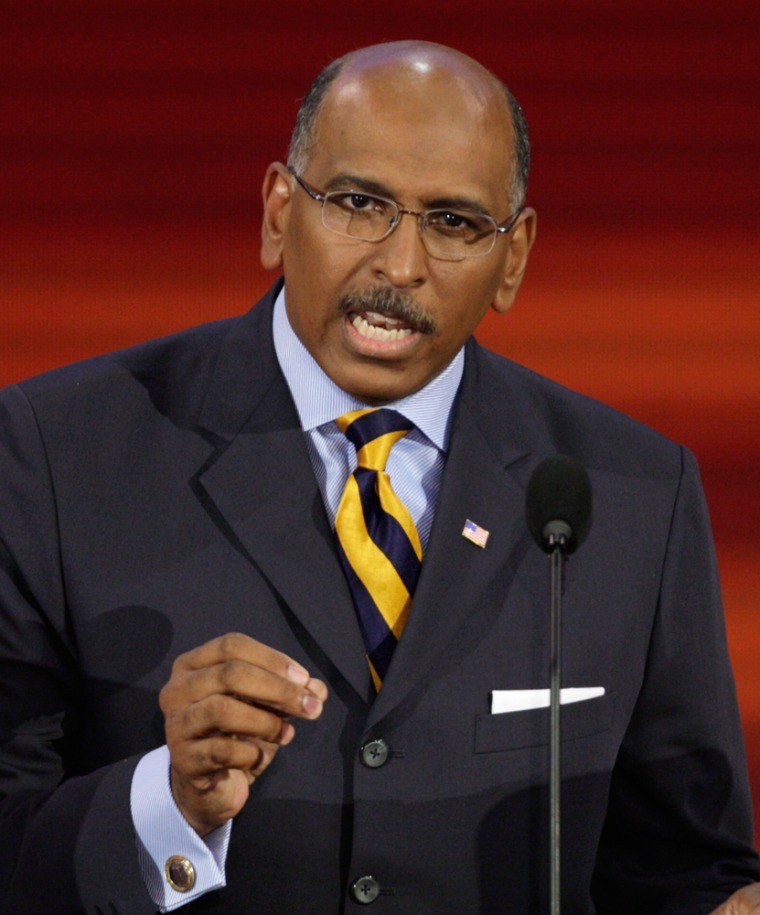After losing the presidential contest in November, as well as additional House and Senate seats, the Republican Party can at least find comfort in this one fact: Democrats were in this same position just four years ago.
Now, they control the White House and Congress.
Several events and actions helped the Democrats during this relatively short period of time — the Iraq war, the economic collapse, Bush’s unpopularity and Barack Obama’s impressive campaign.
But one other thing contributed to the party’s success. Beginning with the 2005 race for chairman of the Democratic Party, which Howard Dean won, Democrats began asking (and then answering) important questions about the state of their party:
- How do you find more opportunities for electoral votes and congressional pick-ups? (Answer: You begin investing in more states, in what became known as the Democrats’ 50-state strategy.)
- How do you raise more money? (You use the Internet, which Dean pioneered in his 2004 presidential bid.)
- And how do you begin generating more enthusiasm? (You focus on the grassroots and stand up for what the party believes in.)
“The party was drifting into irrelevancy and Dean had to chart a new course,” said Donna Brazile, a Democratic National Committee member who worked as Al Gore’s campaign manager in 2000. “With the 50-state strategy, Dean helped to revive a dormant party in many parts of the USA.”

Now, with the Republican National Committee poised to elect its new chairman later this month, Republicans — as well as quite a few Democrats — are paying attention to what the six candidates for RNC chair are saying after their party’s defeats last November.
“The leader of the RNC can be a transformational figure in the party,” said GOP strategist Phil Musser. “This person has the opportunity to chart a new path and be the new face of the Republican Party, which we need.”
Four challenges for six candidates
The six candidates are Michigan GOP chair Saul Anuzis; former Ohio Secretary of State Ken Blackwell; South Carolina GOP chair Katon Dawson; current RNC chairman Mike Duncan, who is running for re-election; Chip Saltsman, who managed Mike Huckabee’s presidential campaign; and former Maryland Lt. Gov. Michael Steele.
And the winner will become the leader of a Republican Party that appears to be facing four fundamental challenges after its losses in 2008:
1. Winning minorities and young voters
The GOP has increasingly become a party that’s appealing only to white voters, which is hardly good news when you consider that the United States will become a majority-minority country in three decades. In the presidential election, John McCain grabbed just 4 percent of the black vote, 31 percent of the Latino vote and 35 percent of the Asian-American vote — all down from George W. Bush’s haul in 2004.
The struggle that McCain — a senator from the border state of Arizona — had with Latinos is particularly troublesome for Republicans. Matthew Dowd, who served as Bush’s chief strategist in the ’04 election (and who later parted ways with Bush and the GOP), says that future Republican presidential nominees will need to get more than 40 percent of the Latino vote to be able to win.
What’s more, McCain lost voters aged 18-29 by more than 30 points (66 percent to 32 percent). That represents an entire generation of first or second-time voters who pulled the lever for the Democratic Party. “Losing young voters by 30-plus points is a major fire alarm,” Dowd said.
2. Moving beyond the South
The GOP also finds its strength — and appeal — concentrated primarily in the South, and few places elsewhere. According to the nonpartisan Cook Political Report, nearly half of the Republicans in the U.S. House (80 out of 178) hail from the South. By contrast, they have only 18 members from the Northeast (compared with the Democrats’ 77), 45 from the Midwest (the Dems have 55) and 35 from the West (Dems have 63).
In addition, December’s NBC News/Wall Street Journal poll showed that 33 percent of American adults in the South viewed the Republican Party favorably. That’s compared with just 19 percent who viewed it positively in the Northeast, 25 percent in the Midwest and 28 percent in the West. Likewise, according to the exit polls, the South was the only region where McCain beat Obama.
One other piece of geographic bad news for Republicans: In the presidential race, Obama won the suburbs, 50 to 48 percent — Bush won them in both 2000 and 2004.
3. Keeping up with Obama’s financial juggernaut
In his two years of campaigning for president, Obama raised three-quarters of a billion dollars — much of it over the Internet — from about four million donors, which comes to less than $200 per donor. To put Obama’s haul into perspective, it's more than the combined amount ($695 million) Bush and Kerry had at their disposal in 2003 and 2004, according to data from the Center for Responsive Politics.
By comparison, McCain raised $367 million in the 2008 presidential cycle, which includes $84 million he received in public funds. Even when you add the $417 million the Republican National Committee raised, that total ($784 million) trails the combined Obama-DNC haul (almost $1 billion).
To win in 2012, the Republican Party and the next GOP presidential nominee will need to find ways to compete with the Obama fundraising juggernaut, and they’ll have to do it without a sitting Republican president to help raise money.
4. Winning back the center
While pundits might debate whether the nation is center-right or center-left, the 2008 election and its aftermath show that Republicans are losing the center. Obama beat McCain among independents by eight points, 52 percent to 44 percent.
Moreover, while 49 percent of adults (including 36 percent of independents) viewed the Democratic Party favorably in December’s NBC News/Wall Street Journal poll, just 27 percent of adults (and 18 percent of independents) said the same about the GOP.
“If you can’t win the center, you can’t win elections,” Republican pollster Bill McInturff said at a December breakfast with political reporters.
Breaking down the field
By and large, the six candidates running for RNC chair agree on most issues, including some of these challenges for the party. They all want the GOP to do a better job reaching out to minorities and younger voters; they believe it needs to catch up to the Democrats with technology (especially in raising money online); and they want the party to pay more attention to the grassroots.
Their differences are in message, tone and geography.
Anuzis (from Michigan) and Steele (from Maryland) hail from states that have reliably voted Democratic in recent years, and they both believe that the Republican Party needs to become more competitive in areas outside the South. Steele, who lost a bid for the Senate in 2006, is regarded as the most moderate candidate in the field.
Meanwhile, Dawson (South Carolina) and Saltsman (Tennessee) are from the South and have emphasized the GOP’s conservative beliefs.
Blackwell comes from one of the nation’s most competitive battleground states (Ohio), but he is probably the most conservative candidate. At a recent forum for the prospective RNC chairs, he said that the most important thing for the party was “to reinvigorate our base.”

In 2006, as the Republican nominee in Ohio’s gubernatorial election, Blackwell got just 37 percent of the statewide vote.
Duncan, the party’s current chair who hails from Kentucky, ironically has promised to be the candidate “who will bring significant change to the Republican Party,” as he said at that same forum. He also has touted his creation of the RNC’s Center for Republican Renewal, an in-house think tank to develop new ideas for the party.
“Republicans have grown accustomed to having our party recognized as the ‘party of ideas,’” Duncan says. “But we must acknowledge that many Americans today believe the party is stale and does not deserve that label.”
Perhaps the biggest controversy in the race so far was when Saltsman distributed a CD to RNC members, which included a parody song called “Barack the Magic Negro.” Saltsman said it was “light-hearted” humor, while Anuzis and Duncan criticized it. Blackwell and Steele — both of whom are black — defended Saltsman.
Democratic strategist Simon Rosenberg, who ran against Dean for DNC chair in 2005, has said the Barack-the-Magic-Negro controversy epitomizes the Republican Party’s struggle with minorities. “That a major candidate for RNC chair could produce this song, at this time…is yet another example of why for the GOP theirs is a long road back.”
The upcoming vote
From Jan. 28-31, the 168 members of the Republican National Committee will gather in Washington, D.C., to select the party’s new chairman. The winner needs a simple majority (85 votes). But with the six candidates in the field, it will probably take a second vote — or a third — before the winner is determined.

Given the multiple votes, observers aren’t too sure how the race will play out, or even who the favorite is. Perhaps the most important thing to watch will be the number of first-round votes the incumbent Duncan gets. The closer he is to 85 in that initial round, the stronger his position will be.
Whoever wins will inherit a party looking to bounce back after its defeats in 2008. While Republicans are waiting for Obama to stumble — as Bush did in his second term — they also see this race as tremendous opportunity to have an important debate about the future of the party, as Democrats did four years ago.
Says Bruce Haynes, a Republican media consultant and public affairs strategist, “We’re looking for someone whose job isn’t just to repaint the house, but to remodel the house.”
Mark Murray covers politics for NBC News.